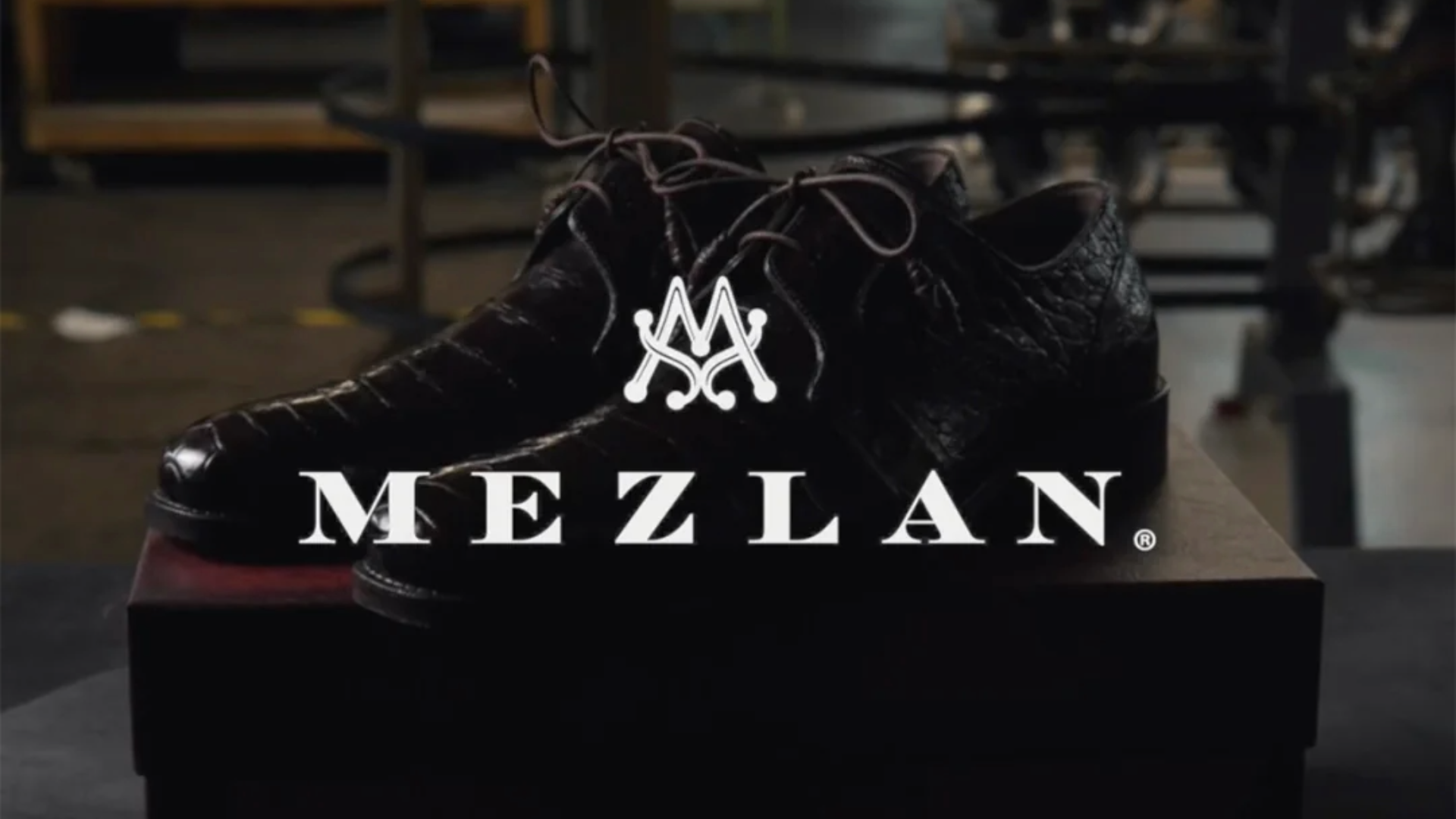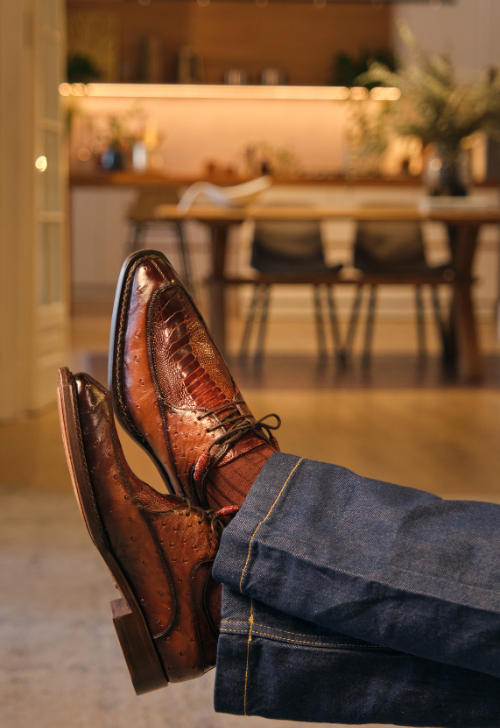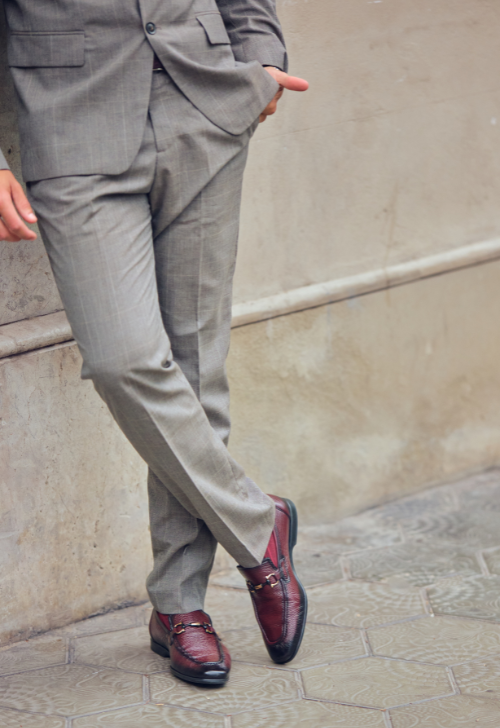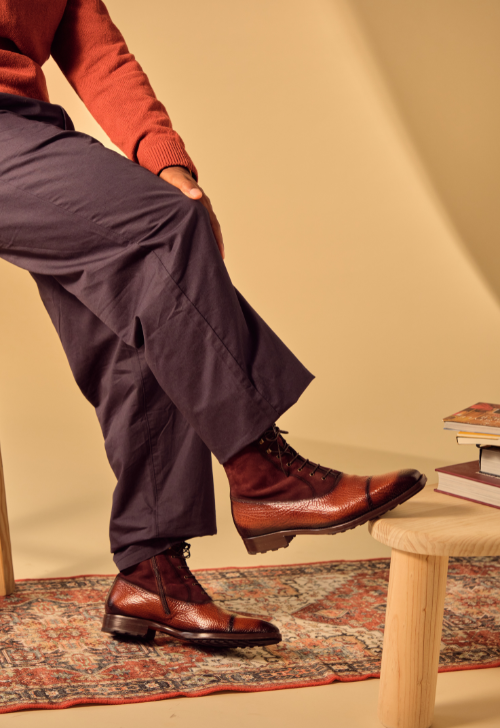The Goodyear Welt: As Good As It Gets

Originally posted on Quintessential Gentleman, Contributed by Mezlan's Randy Weber.
Long thought of as the providence of women, shoes are becoming increasingly important in the world of men's fashion. From collectible sneakers to designer leather dress shoes, the number of choices on the market means that any man can find the footwear that best represents who they are.
But that doesn't mean that all shoes are created equally. In fact, by virtue of production alone, some shoes look better, last longer, and feel more comfortable than the competition. And if you want the very best option available in men's footwear, then you should learn how to spot Goodyear Welted shoes.
Invented in 1869 by Charles Goodyear Jr., the goodyear welt has been the top of the line when it comes to formal shoe construction ever since. In order to understand the goodyear welt, however, there are some terms that you will need to learn.
The anatomy of a shoe is typically broken into three main parts: the upper, the insole, and the outsole. The upper is the visible portion of the shoe, usually made with leather or suede, that makes up the top part of the shoe. The outsole is the portion of the shoe on the bottom that makes contact with the ground, and the insole is the part that comes between the outsole and your foot.
Typically, a shoe is made by fitting the three parts to a last, which is a mold of a foot used to help shape shoes during the design and construction process. The upper is then folded between the insole and the outsole and then all three are sewn into place.
The goodyear welt differs from the traditional method by adding a fourth piece into the mix: the welt. A welt is a piece of leather that is added around the perimeter of the outsole. However, the goodyear welt isn't that simple.
Here are the extra steps that go into Goodyear welted shoes:

"The upper is still folded between the insole and the outsole, but a leather welt is also placed atop the edge of the bottom outsole. Additionally, on the bottom side of the insole, a vertical rib runs perpendicular along the outside of the sole. When the upper is placed between the soles, it's placed against this rib and on top of the welt. Then, a stitch is sewn through the welt, through the upper, the ribbed insole, and back through the welt."

Finally, a separate stitch passes through the welt and the outsole. This creates a visible line of stitching between the outsole and the upper, which gives Goodyear welted shoes their distinctive look.

Not only does this second round of stitching result in a shoe that's both breathable and secure, but because of these extra steps, it is far easier to repair the soles on goodyear welted shoes compared to other types of shoes. Additionally, the welt offers an extra layer of protection, which means that Goodyear welted shoes are more secure and water resistant than typical leather shoes.
The best Goodyear welted shoes also utilize something called a lockstitch. This unique stitching method means that even if a single stitch happens to come undone, there won't be a chain reaction that would unravel your shoes.
Because of the labor-intensive way these shoes are made, they are usually more expensive than shoes that are cemented or made using a simpler method. But the longer lifespan of a Goodyear welted shoes and the timeless look makes them an excellent investment for the modern-day gentleman. In fact, with the right care and maintenance, leather shoes made with a Goodyear welt can last indefinitely.
Choosing the right shoe is a nearly sacred experience for some. The right shoe is about the marriage of style and substance - something that will last for years, something that won't fall apart or go out of style.
Goodyear Welted shoes offer that, and more. There's a reason why they're still making them after 150 years.
This article was contributed by Mezlan's website manager, Randy Weber.






Leave a comment